
Workshop Chair:

Dr. Jingfeng Zhang
Lecturer at
University of Auckland / Research Scientist at RIKEN AIP,
Tokyo
Dr. Jingfeng Zhang is a lecturer with a permanent appointment in computer science
department of the Faculty of Science at the University of Auckland, New Zealand; he is
is a research scientist at the “Imperfect Information Learning Team” in RIKEN-AIP,
Tokyo. Jingfeng obtained his Ph.D. degree (in 2020) at the School of Computing at the
National University of Singapore.
He is the PI of multiple grants, including “JST
Strategic Basic Research Programs, ACT-X, FY2021-2023”, “JSPS Grants-in-Aid for
Scientific Research (KAKENHI), Early-Career Scientists, FY2022-2023”, “RIKEN-Kyushu Univ
Science & Technology Hub Collaborative Research Program, FY2022”. He is a recipient
of the RIKEN Ohbu Award 2021 (50 recipients each year in all RIKEN's disciplines).
He serves as an associate editor for IEEE Transactions on Artificial Intelligence and
reviewers for prestigious ML conferences such as ICLR, ICML, NeurIPS, etc.
His
long-term research interest is to build a secure and responsible ML environment. His
homepage https://zjfheart.github.io for
details.
Submission method: Please submit the
paper via Microsoft CMT
system
Please note: When you submit your papers in CMT system, please
choose "Workshop 1: Foundation Models and Fine-tuning Strategies" in the Subject
Areas.
Invited Speakers

Assoc. Prof. Jingjing Chen
Fudan University, China
Biography: Jingjing Chen received the Ph.D. degree in
computer science from the City University of Hong Kong in 2018. She was a Postdoctoral
Research Fellow at the School of Computing, National University of Singapore. She is now
an Associate Professor at the School of Computer Science, Fudan University. Her research
interests lie in the areas of robust AI, multimedia content analysis, and deep
learning.
Speech Title: Robust Multimedia Content Analysis: From Availability To
Reliability
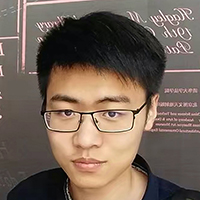
Dr. Tonghan Wang
Harvard University, USA
Biography: Tonghan Wang is currently working with Prof.
David Parkes in the EconCS group at Harvard University. Before joining Harvard, he got a
M.S. degree at Institute for Interdisciplinary Information Sciences, Tsinghua
University, headed by Prof. Andrew Yao, under the supervision of Prof. Chongjie Zhang .
His primary research goal is to develop innovative models and methods to enable
effective multi-agent cooperation, allowing a group of individuals to explore,
communicate, and accomplish tasks of higher complexity. His research interests include
multi-agent learning, reinforcement learning, and reasoning under uncertainty.
Speech Title: Symmetric Robot Design With Muscle Synergy Based On
Foundation Models
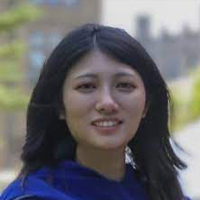
Asst. Prof. Irene Li
University of Tokyo, Japan
Biography: Irene Li is now an Assistant Professor at the
Information Technology Center, University of Tokyo. She is starting her own Li-Lab at
Tokyo University, working in AI, ML, and NLP.
Speech Title: A Journey from Transformers to Large Language Models: an
Educational Perspective
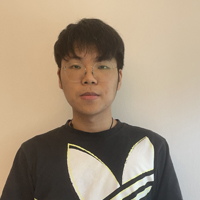
Dr. XIlie Xu
National University of Singapore, Singapore
Biography: Xilie Xu is a third-year PhD student at
National University of Singapore supervised by Prof. Mohan Kankanhalli and co-advised by
Prof. Jingfeng Zhang. He is broadly interested in adversarial machine learning and its
applications.
Speech Title: Towards Effective and Efficient Self-Supervised Robust
Pre-training
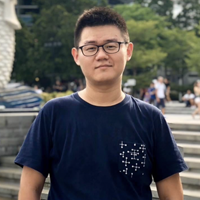
Dr. Hanshu Yan
ByteDance, Singapore
Biography: Dr. Hanshu Yan is a Research Scientist at
ByteDance Singapore, where his team focuses on developing efficient and controllable
video/image generation models and applying them to creative editing tasks. His research
interests lie in machine learning and computer vision with the goal of exploring
principled machine learning algorithms that can address challenging problems in
engineering and science.
Speech Title: Image and Video Editing via Diffusion Probabilistic
Models

Workshop Chair:

Asst. Prof. Bo Han
Hong Kong Baptist
University, Hong Kong S.A.R., China
Dr. Bo Han is an Assistant Professor of Computer Science and a Director of Trustworthy Machine Learning and Reasoning Group at Hong Kong Baptist University, and a BAIHO Visiting Scientist at RIKEN Center for Advanced Intelligence Project. He was a Visiting Faculty Researcher at Microsoft Research (2022) and a Postdoc Fellow at RIKEN AIP (2019-2020). He received his Ph.D. degree in Computer Science from University of Technology Sydney (2015-2019). During 2018-2019, he was a Research Intern with the AI Residency Program at RIKEN AIP, working on trustworthy representation learning. He also works on causal representation learning. He has co-authored a machine learning monograph, including Machine Learning with Noisy Labels (MIT Press). He has served as area chairs of NeurIPS, ICML, ICLR, and UAI. He has also served as action editors and editorial board members of JMLR, MLJ, TMLR, and IEEE TNNLS. He received the Outstanding Paper Award at NeurIPS and Outstanding Area Chair at ICLR. His homepage can be found here: https://bhanml.github.io/.
Submission method: Please submit the paper
via Microsoft CMT system
Please note: When you submit your papers in CMT system, please choose "Workshop 2:
Trustworthy Foundation Models under Imperfect Data" in the Subject Areas.
Invited Speakers
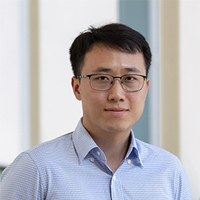
Asst. Prof. Kaiyang Zhou
Hong Kong Baptist University, Hong Kong S.A.R.,
China
Biography: Dr. Kaiyang Zhou is an Assistant Professor at the
Department of Computer Science, Hong Kong Baptist University. He was previously a postdoc at
Nanyang Technological University, Singapore. He received his PhD in computer science from
the University of Surrey, UK. His research lies at the intersection of computer vision and
machine learning and has been published at top-tier journals and conferences in relevant
fields such as TPAMI, IJCV, and CVPR. He is an associate editor of the International Journal
of Computer Vision (IJCV), and the creator of the popular open-source software Torchreid for
person re-identification.
Speech Title: Prompt learning for generalizable visual perception
Abstract: Originating from natural language processing, the new paradigm
of prompting has recently swept through the computer vision community, bringing disruptive
changes to various computer vision applications, such as image recognition and image
generation. In comparison to the traditional fixed-once-learned architecture, like a linear
classifier trained to recognize a specific set of categories, prompting offers greater
flexibility and more opportunities for novel applications. This is because prompting allows
the model to perform new tasks, such as recognizing new categories, by tuning textual
instructions or modifying a small number of parameters in the model's input space while
keeping most of the pre-trained parameters untouched. This paradigm significantly pushes
human-AI interaction to unprecedented levels. In this talk, I will discuss how to use prompt
learning to adapt large vision-language models for generic visual perception tasks including
image classification and object detection.

Asst. Prof. Ying Wei
City University of Hong Kong, Hong Kong S.A.R., China
Biography: Ying Wei is an Assistant Professor in the Department
of Computer Science, City University of Hong Kong since Feb 2021. Prior to that, she was a
Senior Researcher at the Machine Learning Center of Tencent AI Lab from November 2017 to
January 2021. She works on machine learning, and is especially interested in solving
challenges in transfer and meta learning by pushing the boundaries of both theories and
applications. She received her Ph.D. degree from Hong Kong University of Science and
Technology in 2017 with the support of Hong Kong PhD Fellowship. Her work was nominated for
the best paper candidates at KDD’14. She has been invited as a senior PC member for AAAI, to
give invited talks at NeurIPS MetaLearn 2021 and FTL-IJCAI 2021 workshops, and as a PC
member for many other top-tier conferences, such as ICML, NeurIPS, ICLR, and etc.
Speech Title: Promoting the Generalization of a Pre-trained Model
Abstract: Much of the research hitherto has made strides under pre-trained
models and fine-tuning of them in downstream tasks, though the generalization of pre-trained
models in real-word applications is less guaranteed. In this talk, I explore three
perspectives that improve the generalization of pre-trained models. In particular, I will
first explore a transferability estimation measure, so as to give a hint on which
pre-trained model out of a huge pool to use for a specific downstream task. Then I will
discuss how to promote the diversity of tasks pre-trained during meta-training via a task
augmentation approach, which also greatly improves the generalization of a pre-trained model
via foreseeing test/unseen tasks. Finally, given the chosen pre-trained model and the target
downstream task, I will explore an ensemble fine-tuning scheme that automatically determines
where to transfer from the pre-trained model.
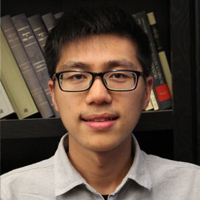
Asst. Prof. Yifan Chen
University of Illinois Urbana-Champaign, USA
Biography: Yifan Chen is an assistant professor in computer
science and math at Hong Kong Baptist University. He is broadly interested in developing
efficient algorithms for machine learning, encompassing both statistical and deep learning
models. Before joining HKBU, Yifan earned his Ph.D. degree in Statistics from University of
Illinois Urbana-Champaign in 2023, fortunately under the guidance of Prof. Yun Yang.
Speech Title: NTK-approximating MLP Fusion for Efficient Language Model
Fine-tuning
Abstract: Pre-trained language model (PLM) emerges as the core component
in many natural language processing applications. However, even fine-tuning the PLMs and
doing inference are expensive, especially on edge devices with low computing power. Despite
some general approaches (e.g., quantization and distillation) for efficient fine-tuning,
very few one-shot compression techniques are explored. In this paper, we investigate the
neural tangent kernel (NTK)--which reveals the gradient descent dynamics of neural
networks--of the multilayer perceptrons (MLP) modules in a PLM and propose to coin a
lightweight PLM through NTK-approximating MLP fusion.

Introduction:
Reinforcement learning (RL) is a machine learning
technique where an agent learns a policy that generates decisions as actions in an
environment through trial and error. The agent receives feedback in the form of rewards or
penalties based on its actions, allowing it to learn optimal strategies to maximize its
cumulative reward over time. RL has achieved tremendous successes in simulated environments
such as in video games, MuJoCo benchmarks, and the game of Go, where the environments are
well-defined and training samples are sufficient. There have been growing interests in
applying RL in the real world, with recent successes in various domains such as robotics,
healthcare, finance, autonomous driving, and energy management. However, deploying RL to
real-world applications still remains an open challenge. This workshop covers (1)
fundamental research questions underlying the real-world RL applications, and (2) exemplary
studies that demonstrate successes of real-world RL applications, and lessons
learned.
Topics of interest include (but are not limited to):
1. studies
addressing technical challenges about real-world RL systems, esp. about deployment/product,
such as robustness, interpretability, sim2real gap, etc.
2. building high-fidelity
simulators and benchmarks/datasets for real-world RL systems
3. human factors in
real-world RL systems
Workshop Chair:

Dr. Haipeng Chen
William & Mary,
USA
Haipeng Chen is an assistant professor of data science at William & Mary. Previously, he was a postdoctoral fellow at Harvard University and Dartmouth College. He obtained his Ph.D. from Nanyang Technological University (NTU). His primary research interest is in AI for social good. He investigates theoretical and practical research questions in deploying AI techniques (e.g., reinforcement learning, combinatorial optimization, and prediction) to social domains (e.g., health, environment, cybersecurity, networks). His research has been recognized with the best paper nomination at AAMAS-2021, Innovation Demonstration Award runner-up at IJCAI-2019, and Champion of the 2017 Microsoft Malmo Collaborative AI Challenge. He publishes in premier AI/data science conferences such as AAAI, IJCAI, NeurIPS, AAMAS, UAI, KDD, ICDM, and journals (e.g., IEEE/ACM Transactions). He regularly serves as reviewer/meta-reviewer at premier AI conferences such as AAAI, IJCAI, NeurIPS, ICLR, and ICML. He co-chaired several workshops at the theme of AI and society, including two at ICLR and IJCAI, and one at Harvard. Aiming at algorithm deployment, he collaborates with various non-profits and practitioners from the field, such as the Virginia Department of Health, Tufts Medical Center, Olde Towne Medical Center, The Family Van, Mobile Health Map, Safe Place for Youth, and Wadhwani AI.
Workshop Co-Chair:

Dr. Yuxi Li
RL4RealLife
Dr. Yuxi Li obtained his PhD in CS from the University of Alberta. On reinforcement learning for real life, he is the lead co-chair for NeurIPS 2022 and ICML 2021/2019 Workshops (https://sites.google.com/view/rl4reallife/), and the lead guest editor (twice) for the Machine Learning Journal Special Issue. He authored a 150-page deep RL overview, with 1200+ citations, https://bit.ly/2AidXm1, and Reinforcement Learning in Practice: Opportunities and Challenges, https://arxiv.org/abs/2202.11296. He reviews for AAAI, ACM CSUR, CACM, JAIR, JMLR, NeurIPS, TKDD, etc. Founder of RL4RealLife.org.
Invited Speakers

Dr. Ruibo Liu
Google DeepMind
Biography: Dr. Ruibo Liu is currently a Research
Scientist at Google DeepMind. He is interested broadly in natural language processing,
with a particular focus on considering human factors in building NLP systems.
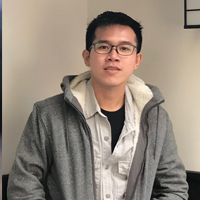
Dr. Hung Le
Salesforce Research
Biography: Hung Le is currently a Research Scientist at
Salesforce Research. Throughout his research career, he has received great guidance from
Steven Hoi and Nancy Chen. During his PhD, he was fortunate to collaborate as a research
intern with leading research labs, including Facebook Research, with Satwik Kottur and
Alborz Geramifard, and Salesforce Research, with Steven Hoi and Richard Socher.

Dr. Zheng Yuan
Alibaba DAMO Academy
Speech Title: RRHF: Rank responses to align language models
with human feedback without tears

Asst. Prof. Hua Wei
Arizona State University, USA
Biography: Hua Wei has joined Arizona State University's
School of Computing and Augmented Intelligence as an assistant professor, while also
affiliating with the Lawrence Berkeley National Laboratory. Prior to this, he served as
an Assistant Professor at the New Jersey Institute of Technology and a Staff Researcher
at Tencent AI Lab. His research spans Reinforcement Learning, Data Mining, Urban
Computing, and Human-in-the-loop Computations.
Speech Title: Towards actionable decision making in the real world

Asst. Prof. Ryan (Zheyuan) Shi
University of Pittsburg, USA